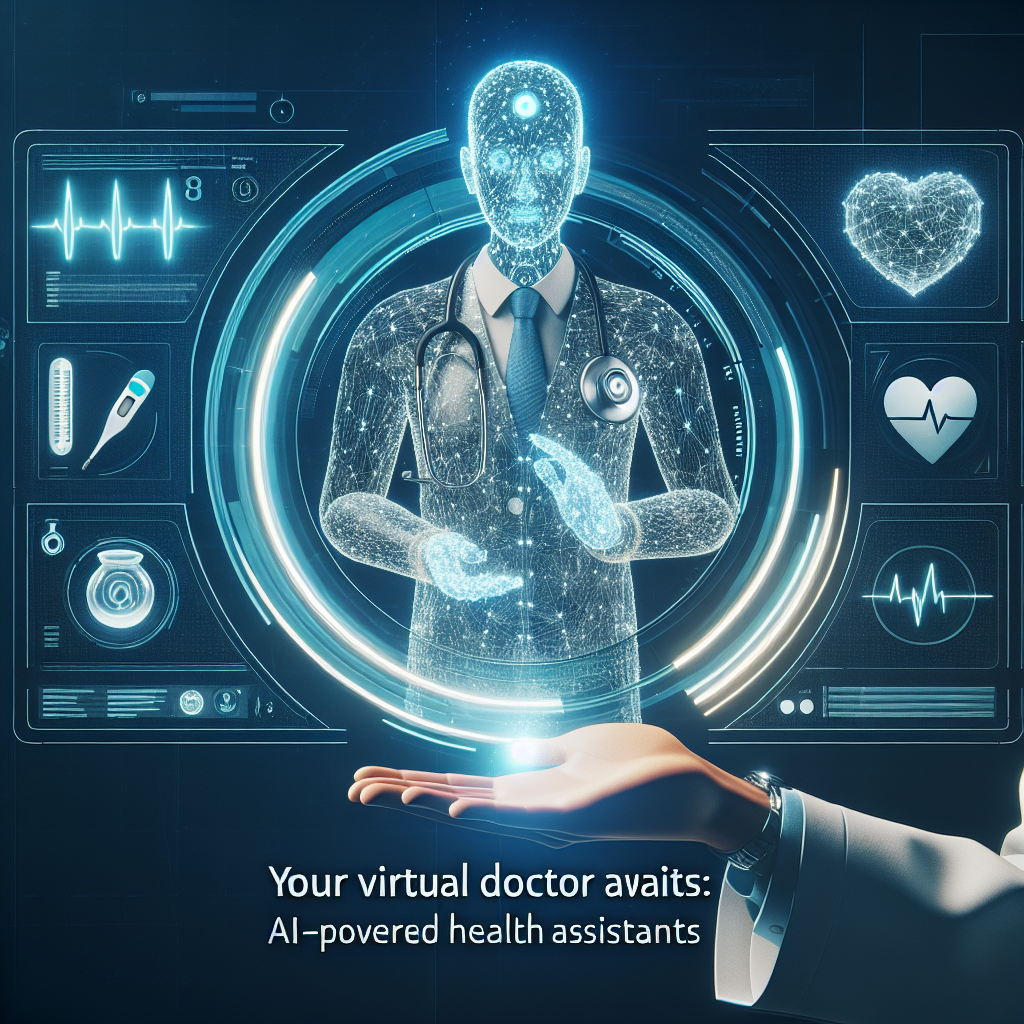Sure! Here’s a rewritten version of your content while maintaining the HTML tags:
<br />
<p>In the rapidly changing world of healthcare, one groundbreaking innovation is making waves: virtual health assistants driven by artificial intelligence (AI). These digital aides are revolutionizing patient experiences, delivering accessible, efficient, and tailored care to millions.</p><br />
<h2>The Emergence of Virtual Health Assistants</h2><br />
<p>Virtual health assistants have arisen from advancements in AI, natural language processing, and telemedicine. They fulfill numerous roles, from providing medical information to organizing appointments and managing health records. Their growth was significantly spurred by the COVID-19 pandemic, which accelerated the shift towards telehealth services and heightened the need for accessible remote healthcare solutions.</p><br />
<h2>How AI-Powered Assistants Function</h2><br />
<p>AI health assistants employ algorithms and extensive medical databases to engage with patients. They analyze symptoms, offer information on different medical conditions, and even recommend possible treatments. The technology that powers these assistants typically includes:</p><br />
<ul><br />
<li><strong>Natural Language Processing (NLP):</strong> This enables assistants to comprehend and respond to human language conversationally, making interactions more intuitive.</li><br />
<li><strong>Machine Learning:</strong> By learning from past interactions, these assistants can enhance their responses and suggestions over time.</li><br />
<li><strong>Data Integration:</strong> They can access electronic health records (EHRs) and other information sources, ensuring that recommendations are tailored to the patient's health history.</li><br />
</ul><br />
<h2>Advantages of Virtual Health Assistants</h2><br />
<ol><br />
<li><br />
<p><strong>Accessibility:</strong> These assistants enhance healthcare accessibility, allowing patients to receive support and advice around the clock, thus removing barriers related to location and time.</p><br />
</li><br />
<li><br />
<p><strong>Cost-Efficiency:</strong> By providing fundamental medical assistance, these assistants can lessen the load on healthcare systems and cut costs tied to in-person visits for non-urgent matters.</p><br />
</li><br />
<li><br />
<p><strong>Personalization:</strong> With the capability to analyze individual health data, AI assistants can offer tailored advice and recommendations, leading to a more customized healthcare experience for users.</p><br />
</li><br />
<li><br />
<p><strong>Enhanced Patient Engagement:</strong> By empowering patients to take an active role in managing their health, virtual assistants can increase engagement and adherence to treatment plans.</p><br />
</li><br />
<li><strong>Streamlined Operations:</strong> Healthcare providers can depend on AI assistants to handle appointments, follow-ups, and patient communications, allowing medical professionals to dedicate more time to complex cases.</li><br />
</ol><br />
<h2>Challenges and Considerations</h2><br />
<p>While virtual health assistants offer numerous benefits, their implementation comes with challenges:</p><br />
<ul><br />
<li><strong>Privacy and Security:</strong> Managing sensitive healthcare information necessitates robust security measures to safeguard patient data and ensure compliance with regulations like HIPAA.</li><br />
<li><strong>Care Limitations:</strong> Although AI can assist in numerous tasks, it cannot replicate the intricate decision-making and empathy that human healthcare providers bring.</li><br />
<li><strong>Overreliance on Technology:</strong> Patients might become excessively dependent on these virtual assistants, potentially overlooking essential in-person consultations.</li><br />
</ul><br />
<h2>Looking Forward</h2><br />
<p>The outlook for virtual health assistants appears bright. As technological advancements continue, we can anticipate even greater capabilities, such as improved diagnostic support, integration with wearable technology, and enhanced insights from big data analytics. It is crucial for healthcare providers and technology developers to collaborate to ensure that these tools are reliable, ethical, and user-friendly.</p><br />
<h2>Conclusion</h2><br />
<p>AI-powered virtual health assistants are transforming the healthcare landscape by delivering numerous benefits that enhance patient care and streamline operations. Despite the challenges, their ability to improve accessibility and personalization in healthcare makes them an essential asset. As we progress, the key question is not if we will adopt these technologies, but rather how we will integrate them into a healthcare system that emphasizes compassion, understanding, and human connection. Soon, your doctor may be seeing you—right from the comfort of your home.</p>
